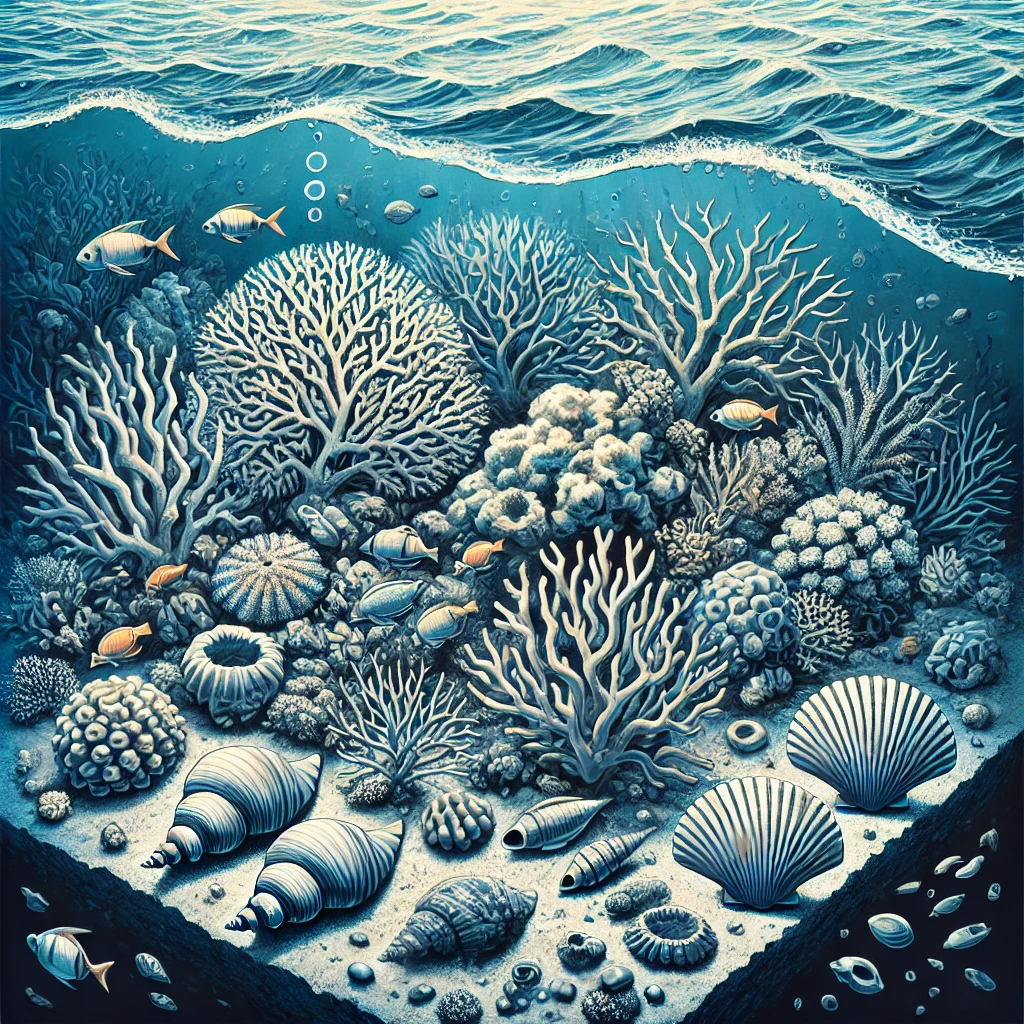What happens if the ocean is acidic?
Article Source: Google Books - What Does Ocean Acidification Do?

Why you should care
Ocean acidification is one of the most serious environmental issues affecting our oceans today. It's caused by the ocean absorbing too much carbon dioxide from the atmosphere, leading to changes in the water’s chemistry. This matters because ocean acidification harms marine life, especially creatures like corals and shellfish, which affects the entire food chain, including the fish we eat.
Answering the question… What happens if the ocean is acidic?
Ocean acidification occurs when oceans absorb carbon dioxide (CO2) from the air, making the water more acidic. The article explains that this process has increased by 30% since the industrial revolution. This change affects marine life, especially organisms with calcium carbonate shells, like clams, oysters, and corals, by weakening their shells and skeletons. If acidification continues at this rate, coral reefs may disappear, and entire ecosystems will be at risk.
How was the study done?
The study measured the impact of ocean acidification on marine ecosystems by analyzing water chemistry changes over time. Researchers used data from different ocean regions to track CO2 absorption and tested how increased acidity affected marine species, particularly corals and shellfish. They also conducted lab experiments where marine life was exposed to various levels of acidity to observe the effects on growth, survival, and reproduction.
What was discovered?
- Ocean acidity has increased by 30% since the industrial revolution, primarily due to the absorption of CO2 from human activities.
- Marine species like oysters, clams, and corals that rely on calcium carbonate to build their shells and skeletons are severely impacted, with studies showing a 20-40% reduction in shell strength under more acidic conditions.
- Coral reefs, home to 25% of marine species, are particularly vulnerable. The study found that many reefs could face mass die-offs within 50-100 years if acidification continues at its current pace.
- Acidification can slow down the growth of coral by as much as 50%, which affects the biodiversity of the entire reef ecosystem.
- Fish populations may also decline, as acidified waters interfere with fish behavior, including their ability to detect predators. In some species, behavioral changes have been recorded in up to 60% of fish tested in acidified conditions.
- The study estimated that if CO2 emissions continue at the current rate, ocean pH levels could drop by 0.3-0.4 units by 2100, making the oceans even more acidic.
Why does it matter?
The findings show that ocean acidification could have devastating effects on marine ecosystems and human industries like fishing and tourism. Coral reefs, which support millions of marine species and provide food and income for over 500 million people, are especially at risk. If we don't act to reduce CO2 emissions, we could see massive disruptions in marine food chains, affecting global fish supplies and ocean health.
